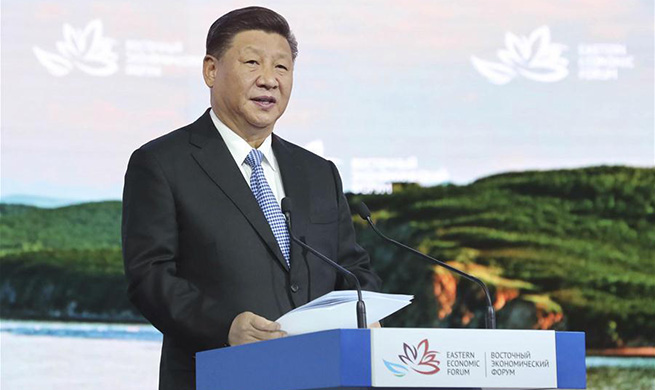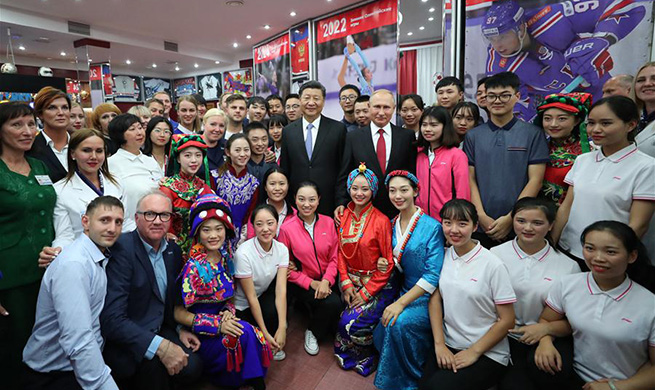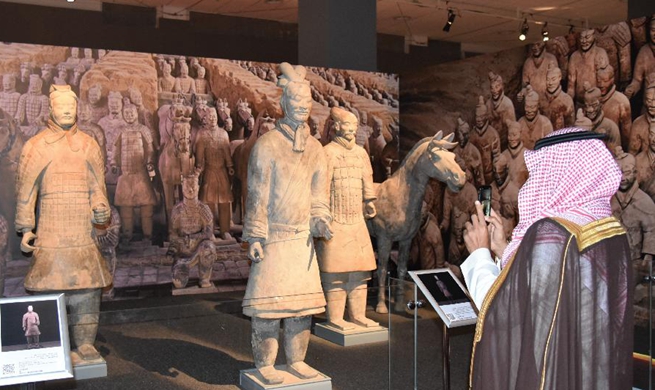by Burak Akinci
ANKARA, Sept. 13 (Xinhua) -- Turkey's central bank beat market expectations on Thursday by hiking its benchmark interest rate to 24 percent, in a bid to stem the double-digit inflation.
In a statement, the bank's Monetary Policy Committee said the policy rate was increased to 24 percent, up from 17.75 percent.
The Turkish lira rallied sharply after the announcement of the decision, gaining more than 5 percent against the U.S dollar before loosing some of its gains.
The central bank also said that inflation developments pointed to "significant risks to price stability," due to the fall of the lira.
It added that it "will continue to use all monetary policy tools for price stability" and "maintain tight monetary stance until inflation outlook improves."
Turkish inflation rose to 17.9 percent in July, the highest record in 15 years amid a currency turmoil resulting from domestic vulnerabilities and a diplomatic spat with the United States over the detention of an American clergyman for terror-related charges.
"This is a bold decision from the central bank. It comes as a surprise because no one I think was expecting to be as impressive as 625 bp," Yalcin Karatepe, an economic professor, told Xinhua.
"The expectations were very high, and, by its decision, the central bank showed that it is not fighting with markets and that the main aim of this decision is to fight high inflation," he said.
Less than two hours before the critical and very awaited meeting of monetary authorities, Turkish President Recep Tayyip Erdogan criticized the central bank for continuously missing inflation targets.
Erdogan repeated his theory on the relationship between interest rates and inflation, saying that rate hikes only lead to faster price gains.
He decried high interest rates as a "tool of exploitation," triggering a drop of the embattled lira which has depreciated around 40 percent since the start of the year.
"We cannot allow the use of the tool of exploitation that is interest," he told a meeting of small business owners in Ankara. "Interests rates are the cause, inflation is the result," insisted Erdogan.
The Turkish leader, meanwhile, made a move that may help the lira. He issued on Thursday a decree banning domestic sales of any kind of property, real estate and rental transactions in foreign currencies.
The decree also outlawed transactions in lira pegged to foreign currencies. Past transactions in foreign currencies must be converted to lira within 30 days at rates to be agreed on between parties, the ruling said.
Dollar and euro transactions are common in Turkey, especially in the commercial real-estate sector, where developers often charge rents in foreign currencies.
Turkey's economy is showing signs of slowing down, as some analysts say it will morph into a technical recession next year.
Turkey's gross domestic product (GDP) rose 5.2 percent in the second quarter of the year, down from 7.4 percent in the first quarter, according to official data published on Monday.
Karatepe, a former dean of the Faculty of Political Science in Ankara University, argued that the central bank's decision to hike the interest rate will fight inflation but will also have an impact on the next two quarters in regard to the GDP.
"We can expect growth to decrease substantially in the third and fourth quarters and bring Turkey towards a recession," he said.

















